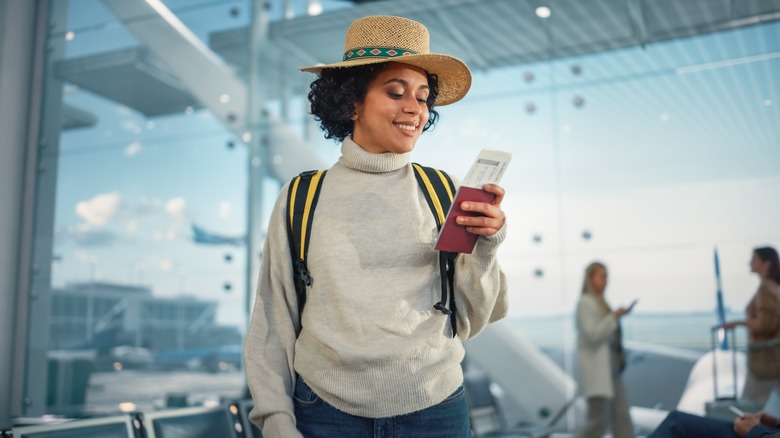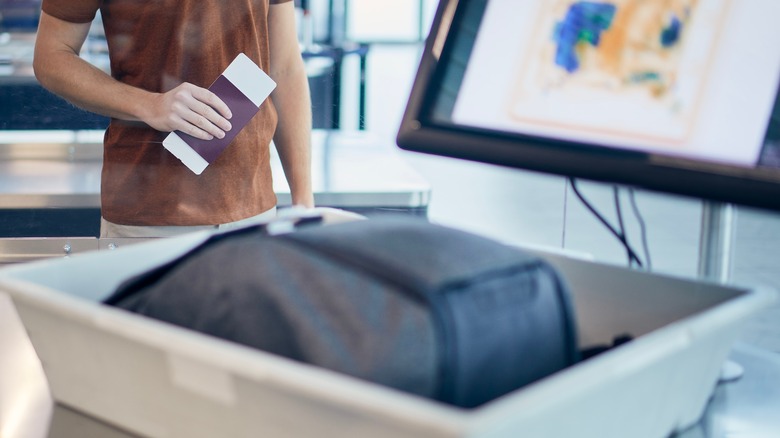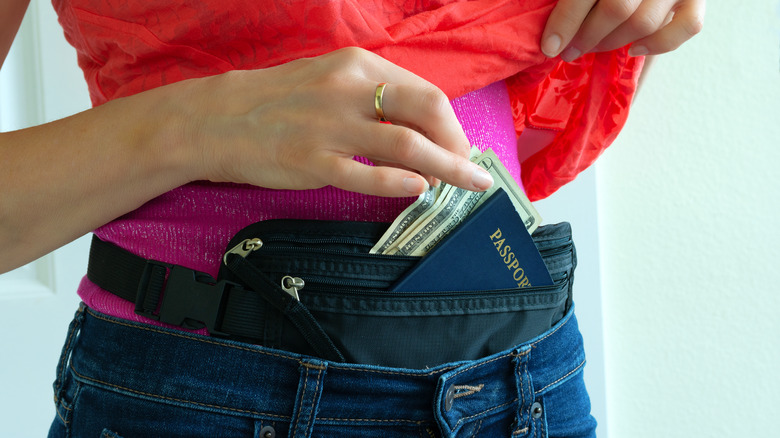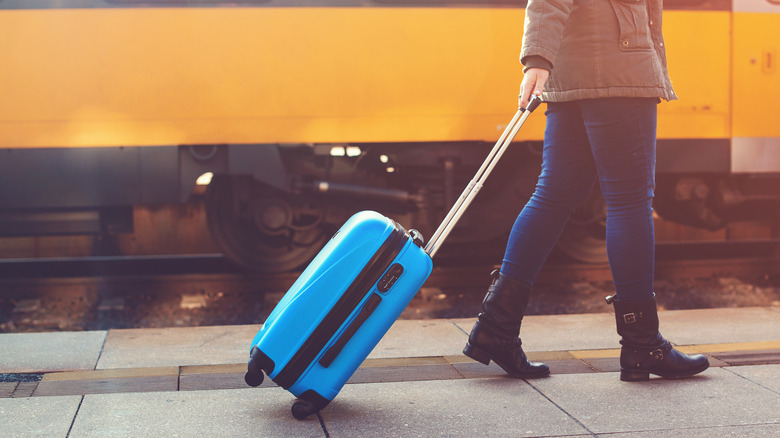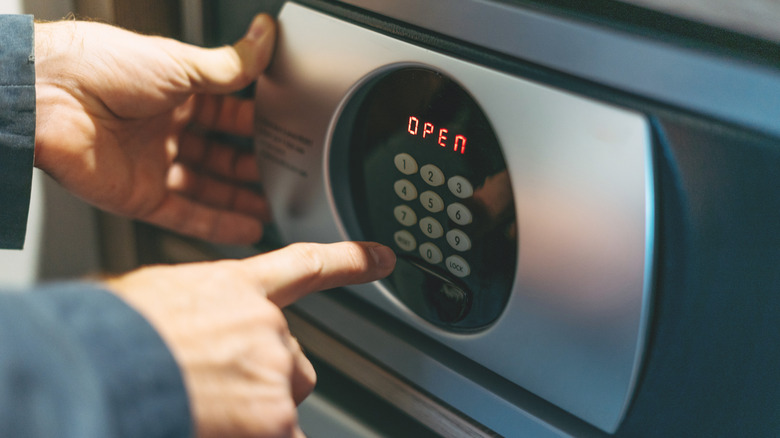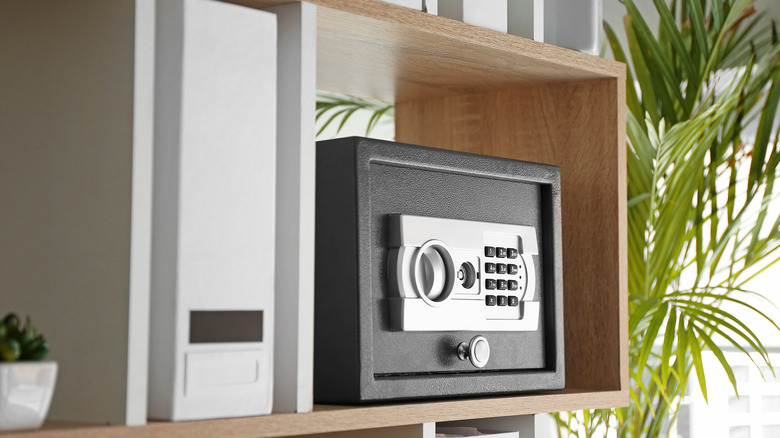Tips For Protecting Your Passport When Traveling Abroad
Traveling can be stressful at the best of times, but it can be especially worrying when we're carrying important items and documents like a passport. Passports are essential for international travel and yet they are small enough to easily misplace or be stolen from pockets or bags. Additionally, visas required for entry and temporary residency in some countries are placed inside passports. Losing these important documents will heavily impact your travel. To avoid this kind of stress and anxiety while traveling with a passport, there are some simple steps you can take to ensure your documents stay where they're meant to be.
Of course, no one is perfect and anything can happen. Just in case your documents do get lost or stolen, you should be sure to take photos and make physical copies of your passport, visas, and IDs ahead of time. You should also make note of your country's nearest embassies and consulates at your destination.
At the airport
Besides border crossings, the airport is possibly the most important place to not lose your passport while traveling. Amidst the commotion of checking in luggage, stripping off your jacket and shoes in the security line, and sitting at your gate before departure, you have multiple opportunities to misplace your passport. To avoid losing your passport at the airport, never leave the document in the pocket of your pants or coat. You'll want to designate a single compartment either in your personal bag or carry-on where your passport goes every single time you take it out and put it back. Ideally, you'll want to put your passport in a personal bag that is physically on your person at all times while you're moving through the airport. This way, you know exactly where it is and you will be less likely to forget it somewhere, lose it, or have it stolen.
Walking around your destination
Keeping your passport safe while sightseeing can be especially stressful. Pickpocketing is one of the more common crimes tourists experience while traveling. Luckily, there are a couple of steps you can take to avoid losing your most precious personal items while enjoying your vacation. The first and potentially most obvious option is to not bring your passport with you outside of your hotel or accommodation. Storing your passport in the hotel room safe using a proper code (not 1234 or 1111) is likely your best bet.
If for some reason you must carry your passport with you — if you're leaving the hotel that day and storing your luggage somewhere, or you're required to have it with you by law in that country — you'll want to keep your documents in a money belt. These are usually small discreet cloth belts that lie flat against your body and are worn underneath your clothing to prevent your money and documents from being stolen. This way, if your bag gets snatched, your most important items are still kept on you. If you don't want to use a money belt, be sure to use a backpack or bag that has zipped closures and keep the body of the bag in front of you when moving through crowds or using public transport.
Traveling by land
If you're traveling in a bus, train, or by car, especially if doing so for many hours or overnight, there are some things you should do to keep your personal items safe. In some destinations, it can, unfortunately, be quite common for things to go missing while a passenger is asleep or just not paying attention to their stuff. For buses, trains, taxis, or vans, you always want to keep your most important documents and items on your person. Do not ever leave them in your luggage or backpack out of sight — even if they are in the luggage storage at the end of your train car, underneath the bus, or in the trunk of a vehicle. This even means if you're being driven somewhere and you make a pitstop, keep your items with you when you leave the car.
Pickpocketing and thievery are crimes of opportunity, so don't give people the chance to steal from you. Keep your items on your person or in a bag at your feet at all times, even if it is slightly uncomfortable. If you'll be falling asleep on your journey and are a heavy sleeper, you can and should take the extra step to lock up your bag.
At your accommodation
Another place your passport may be at risk of getting stolen is at accommodations such as hotels, Airbnbs, and hostels. While hostels are a fantastic way to travel and meet lots of different types of people, especially on a budget, unfortunately, there are people here who may take advantage of inexperienced travelers. Depending on the hostel, there may be safes or lockers in the room (or even just in the hallway) where you can store your passport and other valuable items. In addition to using these lockers to store your things, you should also consider using your own lock to secure the locker. It's a sad reality that sometimes even employees may take advantage of knowing the combination of your lock or having their own master key.
We've already covered using a hotel safe while you're out and about. However, if this doesn't feel like enough, another way to keep your passport (and even yourself) safe while at accommodations is to use a portable door lock. These locks are designed to securely keep the door to your room closed, even if the door is unlocked with a key, making it difficult if not impossible for someone to come into the room without you wanting them to.
At home
Now you know some of the best ways to keep your passport safe while traveling. But what about when you're at home? An important but often overlooked part of keeping your passport safe is to make sure it's stored securely in your place of residence. Passport theft and loss can happen even when you're not abroad. So ensure that when you're not using it, it's kept somewhere secure like a home safe or even in a safety deposit box at your bank. While this might seem like overkill, it's always better to have it and not need it than to need it and not have it, right? Additionally, making an extra copy of the details of your passport and keeping it tucked away in a separate and safe location in your home is also a good idea. Should you need to replace it, this information will be essential to expediting the process.
